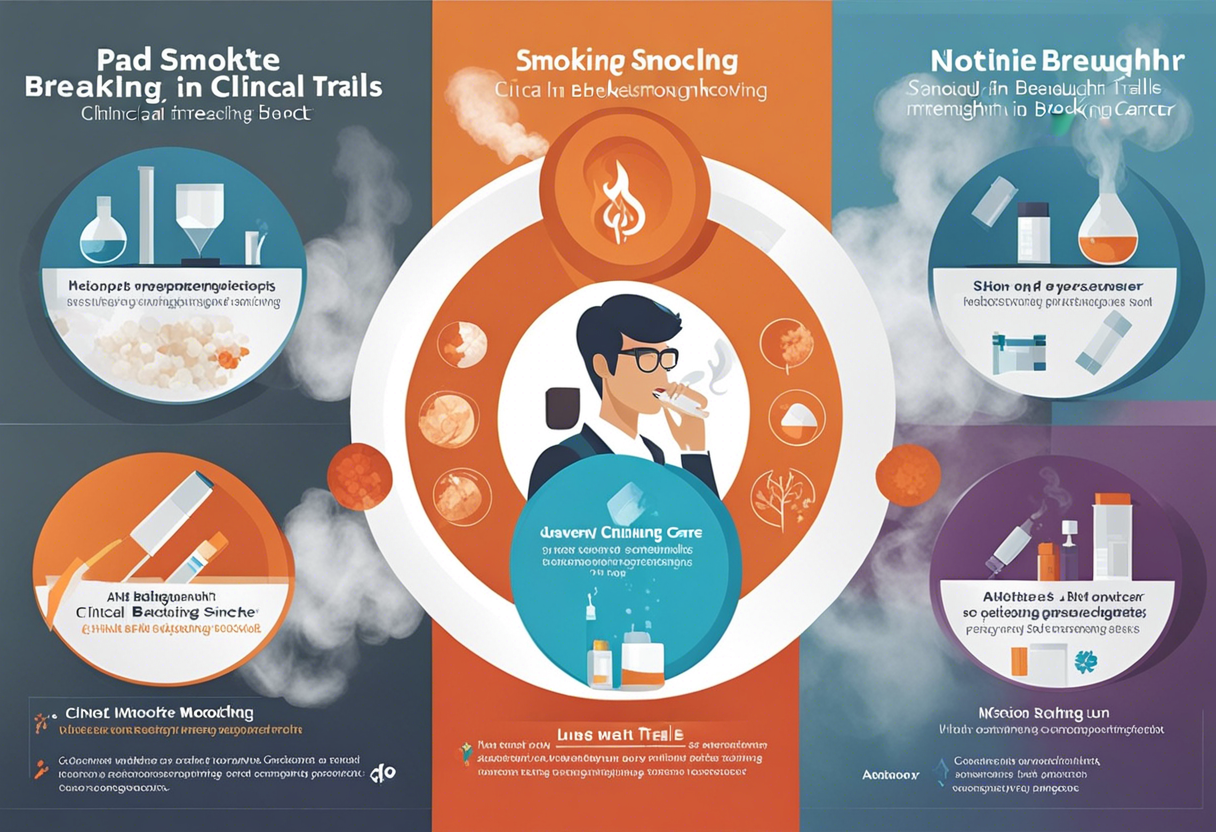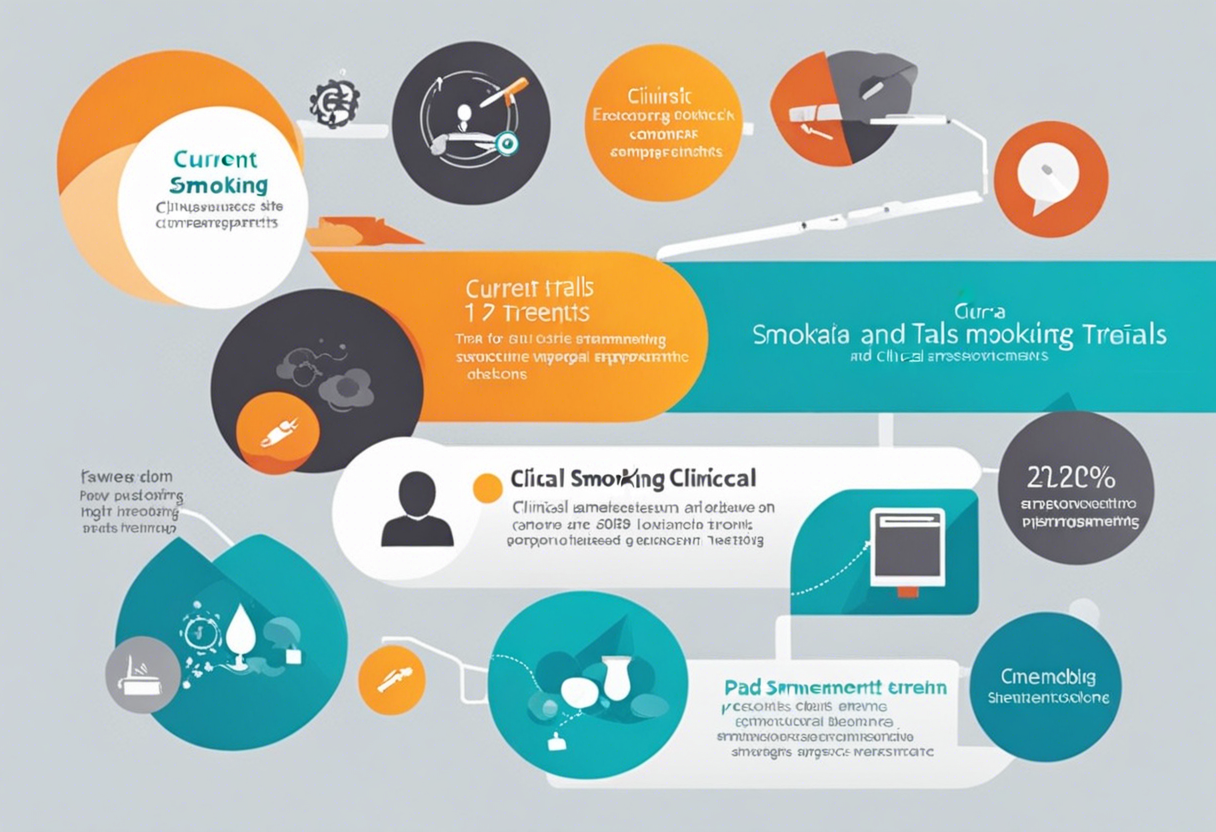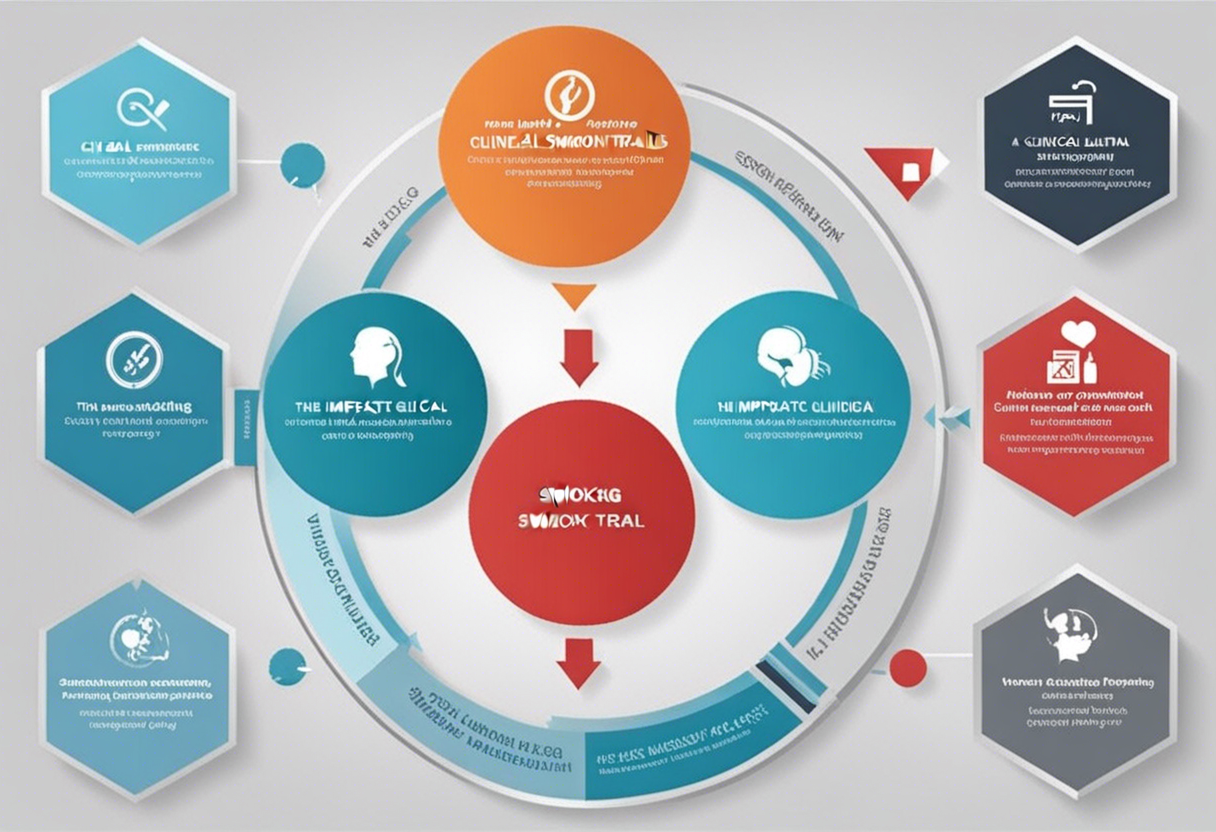Diving Deep into the World of Clinical Smoking Trials: Insights and Breakthroughs
The world of clinical smoking trials is a complex and fascinating realm, filled with intricate research and groundbreaking discoveries. These trials are essential in understanding the effects of smoking on human health and developing effective treatments and cessation strategies. This introductory section will set the stage for our exploration into the world of clinical smoking trials, offering a glimpse into their importance and the breakthroughs they have led to.
Smoking is a global health issue, affecting millions of people worldwide. It is a leading cause of preventable deaths, with numerous health complications associated with it. Clinical smoking trials are thus a critical tool in the fight against this public health menace. These trials seek to investigate the physiological and psychological effects of smoking, the efficacy of various cessation methods, and the development of potential treatments for smoking-related diseases.
Clinical smoking trials have led to significant breakthroughs in our understanding of smoking and its effects. They have revealed the mechanisms through which smoking damages the body, leading to the development of targeted treatments. They have also contributed to the creation of effective smoking cessation strategies, helping millions of people quit smoking and improve their health.
The Mechanics of Clinical Smoking Trials

Clinical smoking trials involve a meticulous and systematic process, ensuring the validity and reliability of the results. This section will delve into the mechanics of these trials, providing an understanding of how they are conducted and the ethical considerations involved.
Clinical smoking trials typically involve several phases. The initial phase involves a small group of participants and focuses on safety and dosage. Subsequent phases involve larger groups and assess the efficacy and side effects of the treatment or intervention. The final phase involves large scale testing in diverse populations.
Ethical considerations are paramount in clinical smoking trials. Participants must give informed consent, and their safety and well-being must be prioritized. Trials must also be designed to minimize harm and maximize benefits. The results of these trials must be reported accurately and transparently, regardless of the outcomes.
Notable Breakthroughs in Clinical Smoking Trials

Over the years, clinical smoking trials have led to numerous breakthroughs in our understanding of smoking and its effects. This section will highlight some of the most significant findings and advancements.
One of the most notable breakthroughs is the discovery of the link between smoking and lung cancer. This was established through a series of clinical trials conducted in the mid-20th century. These trials provided concrete evidence of the carcinogenic effects of smoking, leading to significant changes in public health policy and the perception of smoking.
Another significant breakthrough is the development of nicotine replacement therapy (NRT). Clinical trials have shown that NRT can double the chances of successfully quitting smoking. These trials have also helped refine the use of NRT, determining the most effective dosages and delivery methods.
Current Trends and Future Directions in Clinical Smoking Trials

Clinical smoking trials continue to evolve, with new trends and future directions emerging. This section will delve into these developments, offering insights into the future of smoking research.
One of the current trends in clinical smoking trials is the focus on personalized treatments. Researchers are investigating genetic factors that influence smoking behavior and response to treatments. This could lead to personalized smoking cessation strategies, increasing their effectiveness.
Another emerging trend is the study of electronic cigarettes and their impact on smoking behavior. With the rise of e-cigarettes, researchers are conducting trials to understand their effects on smoking cessation and the potential health risks associated with their use.
The Impact and Importance of Clinical Smoking Trials

Clinical smoking trials have a profound impact on public health, shaping our understanding of smoking and informing the development of treatments and cessation strategies. This final section will reflect on the importance and impact of these trials.
Through clinical smoking trials, we have gained a deep understanding of the harmful effects of smoking. These trials have provided the evidence needed to implement public health policies aimed at reducing smoking rates and protecting non-smokers from secondhand smoke.
Clinical smoking trials also play a crucial role in the development of effective smoking cessation strategies. Through these trials, we have identified treatments that help smokers quit and stay quit, improving their health and quality of life.
Clinical smoking trials are an invaluable tool in the fight against smoking. They provide the evidence and insights needed to tackle this global health issue, leading to significant breakthroughs and advancements. As we continue to delve deeper into the world of clinical smoking trials, we can look forward to further discoveries and improvements in public health.







